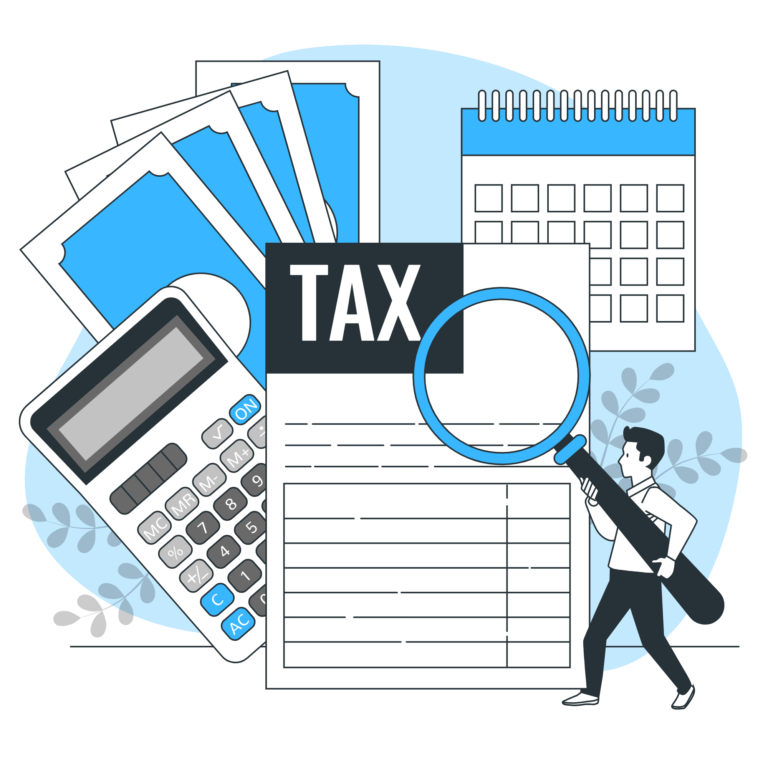Principe du bouclier fiscal à Genève
Introduced in January 2011, taxpayers in Geneva can benefit from the tax shield. But what exactly is it? The tax shield is a protection mechanism against a tax that can be qualified as confiscatory.
Some taxpayers with low incomes compared to their fortunes can use this mechanism to avoid touching their wealth to pay their taxes.
The principle of the tax shield is simple: it sets a ceiling on the amount of tax you have to pay. So even if you own a business or are a wealthy individual, you'll be protected against excessive taxation.
Who can benefit from the Genevan tax shield?
The tax shield in Geneva is a tax measure designed to reduce income tax for certain residents of the canton.
The tax shield applies exclusively to individuals domiciled or residing in the canton of Geneva.
This means that only residents can benefit from this measure; working there or holding part of one's wealth there does not qualify for the tax shield.
It is important to note that the tax shield only applies to income and wealth tax, but does not concern other types of tax such as:
- personal tax
- l'impôt immobilier complémentaire
- l'impôt fédéral direct (IFD)
- l'impôt anticipé (IA)
- la retenue supplémentaire d'impôt (RSI)
- l'impôt étranger à la source (IES)
Taxpayers still have to meet these other tax obligations.
Taxpayers not eligible for the tax shield
People in one of the following situations are not eligible for the tax shield:
- personnes imposées d'après la dépense
- personnes domiciliées à l'étranger
- personnes taxées d'office
Application of the Geneva tax shield mechanism
A Genève, les contribuables résidant dans le canton ne peuvent pas payer plus de 60% de leur revenu net imposable en impôts sur la fortune et sur le revenu, y compris les centimes additionnels cantonaux et communaux.
However, to make this calculation, the net return on assets must represent at least 1% of net assets.
The elements considered as net return on assets in this context are the following:
- Les revenus provenant de la fortune mobilière et immobilière, sont déduits des frais mentionnés à l'article 34 LIPP, tels que les intérêts des dettes, les frais bancaires et les dépenses immobilières.
- La fortune commerciale imposable, en déduisant le taux d’intérêt qui est équivalent à celui utilisé pour calculer le revenu AVS provenant d'une activité lucrative indépendante.
When a couple lives together, the maximum amount of tax they have to pay is calculated by taking into account all their assets and income.
Taxes used to calculate the 60% limit
The taxes taken into consideration must not exceed 60% of net taxable income:
- l'impôt cantonal et communal sur le revenu
- l'impôt cantonal et communal sur la fortune
Not taken into consideration:
- personal tax
- l'impôt immobilier complémentaire
- l'impôt fédéral direct
- l'impôt anticipé (IA)
- la retenue supplémentaire d'impôt (RSI)
- l'impôt étranger à la source (IES)
If the Geneva tax shield is implemented, this means that wealth tax will be reduced, including cantonal and communal additional centimes.
Theoretical return of 1% on assets
In principle, the amount of tax is capped at 60% of the taxpayer's taxable income.
However, if the actual net asset return is less than 1% of the net asset value, it is replaced by a theoretical minimum asset return.
In this situation, there is a difference between taxable income and the income used to calculate the Geneva tax shield. If necessary, it is also necessary to recalculate the deduction for donations in order to determine the shield income, with the aim of guaranteeing equal treatment with taxpayers whose effective net return on their wealth reaches 1% of their net wealth.
Please note that the theoretical minimum return on assets of 1% is a net return. Thus, it is not possible to deduct from the 1% the costs of acquiring wealth income, such as bank or real estate fees.
Conclusion on the tax shield in Geneva
Geneva's tax shield is an essential tool for protecting taxpayers from excessive tax burdens. Thanks to its implementation, it enables Geneva residents to limit their taxes. But to qualify, the confiscatory tax burden must be sustainable, i.e. it must not occur on an exceptional basis.
The application of Geneva's tax shield is based on very specific criteria, such as the amount of the taxpayer's wealth or income. The tax shield can also be applied following an inheritance.
If you'd like to discuss your situation, our experts are at your disposal.
FAQ - Tax shield Geneva
The Geneva tax shield mainly benefits taxpayers resident in Geneva whose combined wealth and income tax exceeds 60% of net taxable income.
If the tax shield applies, the taxpayer's tax liability will be capped at 60% of net taxable income.
Yes, Geneva's tax shield is legal, and its application has been confirmed by rulings handed down by the Swiss Federal Court. What's more, the measure complies fully with the Swiss constitution.
The tax shield enables Geneva taxpayers to reduce/limit their tax burden.





